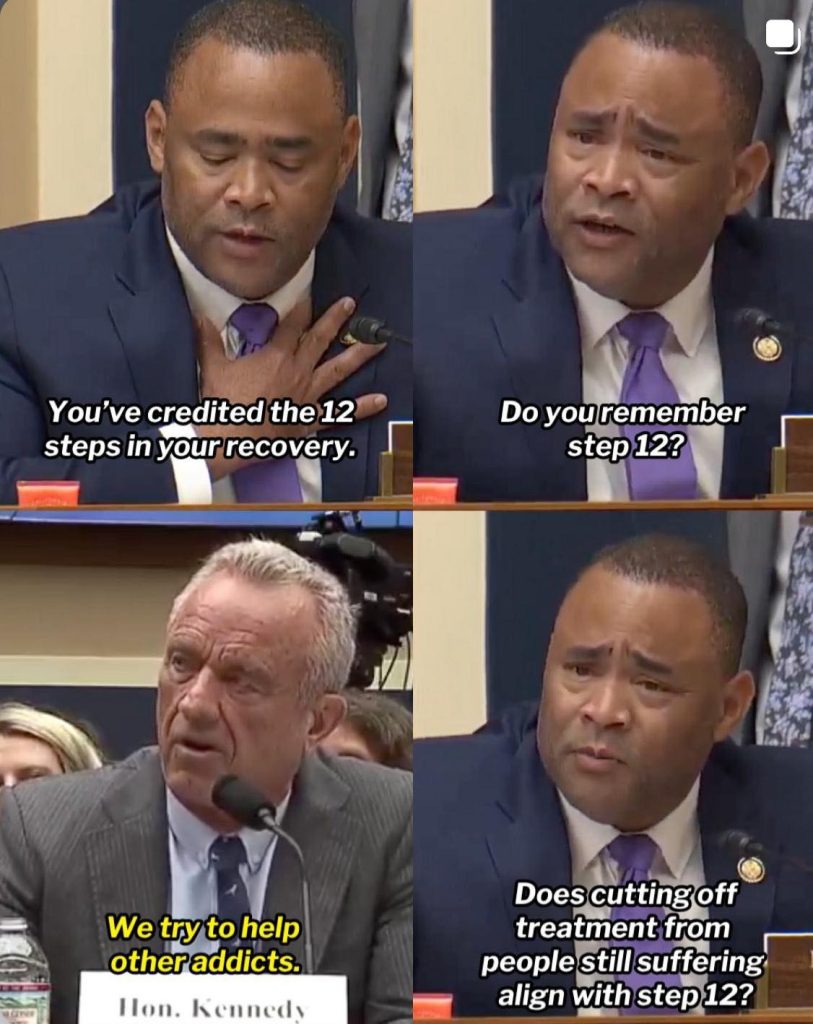
Date: June 25, 2025
Byline: Staff Writer
Washington, D.C. — Tensions flared on Capitol Hill this week during a congressional hearing on addiction treatment funding, when Congressman Troy Carter (D-LA) directly confronted independent presidential candidate Robert F. Kennedy Jr. over his stance on substance abuse policy and support cuts.
In a powerful exchange, Carter referenced Kennedy’s own recovery journey through the 12-step program. “You’ve credited the 12 steps in your recovery,” Carter said, pausing for emphasis. “Do you remember step 12?”
Kennedy, appearing slightly caught off guard, replied: “We try to help other addicts.”
What followed was a pointed challenge from Carter: “Does cutting off treatment from people still suffering align with step 12?”
The moment has since gone viral, with advocacy groups and addiction counselors sharing the clip across social media platforms. Many have applauded Carter for using a moral framework familiar to those in recovery to question policy decisions that could impact vulnerable Americans.
A Moral Litmus Test for Policy
The 12th step of Alcoholics Anonymous encourages recovered individuals to carry the message to others still struggling. Critics argue that Kennedy’s past remarks supporting budget reductions for certain public health programs contradict this ethos — especially in the midst of a worsening opioid crisis.
“Kennedy can’t have it both ways,” said Dr. Lisa Menendez, an addiction specialist. “You don’t get to champion the 12 steps as your personal salvation while standing behind cuts that leave others behind.”
Kennedy Responds
In a follow-up statement, Kennedy defended his record. “I have always supported holistic, effective treatment programs,” he said. “My issue is with wasteful spending and bureaucracy, not helping people. Congressman Carter raised a fair point — and I hear him.”
Public Reaction and Political Fallout
The hearing has reignited debate over how addiction should be addressed in national policy — with many framing the issue not just as a matter of funding, but of compassion, continuity, and accountability.
As the 2024 election season intensifies, moments like this are becoming flashpoints — where personal narratives and public policy collide.

